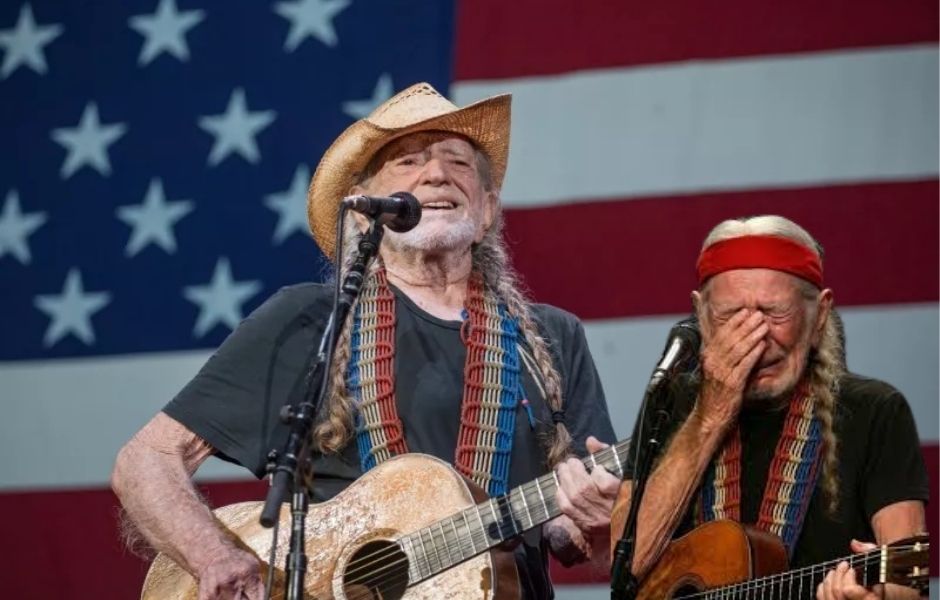
Willie Nelson’s journey to becoming one of the most beloved figures in American music — and a champion for those often left unheard — began with loss. Long before the world knew his name, he was simply a boy in Abbott, Texas, struggling to find his place in a world that had already taken much from him. His parents were gone early, leaving him and his sister Bobbie to be raised by their grandparents.
Life was quiet and poor, without much comfort to speak of. Yet in that stillness, Willie found something powerful: music. With an old guitar in his hands and a restless heart, he discovered an escape. More than that, he discovered a way to tell his story. Each note became a prayer, each lyric a bridge across loneliness. Music was not just an outlet — it was survival, a way to keep breathing when life felt too heavy.
When Willie grew older and fame found him, he could have turned his back on hardship. After all, success had carried him to the world’s biggest stages, and millions adored him. But Willie Nelson never forgot where he came from. He remembered the hunger, the worry, the feeling of being unseen. And as he looked out at America, he saw those same struggles written across the faces of farmers.
The 1980s brought a crisis to rural America. Family farmers, who had fed the nation for generations, were losing their land, their homes, and their livelihoods. The weight of debt and drought pushed many into despair. Their struggles didn’t make headlines in the way big-city stories did. Too often, their voices were drowned out, their pain ignored. But Willie listened. He saw. He understood.
And then — he acted.
In 1985, alongside fellow musicians John Mellencamp and Neil Young, Willie Nelson co-founded Farm Aid. It wasn’t just another charity event; it was a lifeline. The first Farm Aid concert raised millions of dollars, offering immediate relief to struggling families and shining a national spotlight on a crisis many would rather have overlooked. But for Willie, this wasn’t about one night or one stage. It became a lifelong mission.
Year after year, Farm Aid continued, not only raising funds but building awareness. Willie put his heart into every performance, reminding the world that farmers were not nameless workers in distant fields. They were families, fathers and mothers, children and grandparents, fighting to hold on to their heritage and dignity. He gave them a voice when they felt forgotten.
What made his efforts extraordinary was not just his celebrity power, but the sincerity behind it. Willie Nelson didn’t stand up for farmers because it was fashionable. He stood with them because he knew pain. He knew what it meant to lose, to struggle, to wonder if tomorrow would be kinder than today. His compassion was not born from politics or publicity but from empathy — from the memory of a little boy who had once known what it was like to feel powerless.
“We’re all in this together,” Willie often said. And he meant it. To him, saving family farms wasn’t just about crops or land; it was about preserving the soul of America. The farmer’s fight was everyone’s fight.
Today, Farm Aid still lives on, nearly four decades strong, a testament to one man’s belief that music could be more than entertainment — it could be a force for survival and hope. And when we look back at Willie Nelson’s legacy, it will not only be his timeless songs that endure, but also the countless farms still standing, the families still working the soil, and the lives forever changed because he cared enough to act.
Would you fight for those who feed us?
Willie did — with every song, every dollar, and every ounce of heart he had to give.
